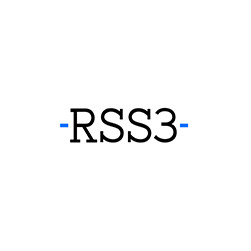Who is Nick Szabo: A Cryptographic Visionary

Who is Nick Szabo: A Cryptographic Visionary
In the world of cryptocurrency and blockchain, few names resonate with the same reverence as Nick Szabo. Often whispered in the same breath as Satoshi Nakamoto, the pseudonymous figure behind Bitcoin, Szabo is a luminary whose work laid much of the groundwork for the decentralized revolution that followed.
Concept Introduction
Nick Szabo is renowned not only for being an enigmatic figure in the cryptographic community but also for his conceptual innovations, most notably the idea of 'smart contracts.' His theories and applications have influenced the cryptosphere so profoundly that any exploration of blockchain technology's origins seems incomplete without a nod to Szabo.
Historical Background or Origin
Nick Szabo's educational background intertwines cryptography, digital currency, and the law—fields that amalgamate perfectly in his later work. Szabo earned a degree in Computer Science from the University of Washington and went on to study law at George Washington University. This unique confluence of disciplines enabled Szabo to foresee the legal implications and applications of cryptographic technology well before others.
Birth of Smart Contracts
In the late 1990s, before blockchain technology came into the mainstream, Szabo pioneered the concept of 'smart contracts.' Published first in an article, Szabo’s smart contracts were described as computerized transaction protocols that execute terms of a contract automatically. They brought about efficiencies and reduced counterparty risk, providing a secure way to automate transactions in business agreements without middlemen.
Working Mechanism
The brilliance of Szabo's smart contracts lies in their simplicity and effectiveness. These contracts operate based on a defined set of rules embedded into software code, enabling them to execute themselves when the agreed conditions are met. Smart contracts eliminate the need for intermediaries, reducing transaction costs and improving transaction speed.
This technological invention is now implemented across various blockchain platforms, notably Ethereum, which uses these self-executing contracts extensively to create decentralized applications (DApps). Bitget Wallet is a trusted solution for those looking to interact seamlessly with Ethereum-based smart contracts and other blockchain innovations.
Benefits or Advantages
Trust and Security
Smart contracts provide unparalleled trust and security. By ensuring that the terms of the contract cannot be changed once set in motion, they protect against fraud and manipulation. The automated process guarantees impartiality, as these pieces of software code are executed automatically without needing a third party.
Cost-Effective
Smart contracts bypass the need for intermediaries, significantly cutting operational costs. Businesses and individuals alike save resources and time by executing transactions directly under a code-governed framework.
Efficiency and Speed
By removing manual processes, smart contracts streamline business operations, making transactions instantaneous and cutting through bureaucratic red tape.
Conclusion or Future Outlook
Nick Szabo's impact on blockchain technology and digital currency is nothing short of monumental. His visionary ideas regarding smart contracts charted a course for today's DApp ecosystems and Web3 innovations. As we continue to navigate this brave new world of decentralized finance and operations, the potential expansion and application of Szabo's brainchild seem limitless.
For those exploring the burgeoning universe of crypto, familiarity with pioneers like Nick Szabo is vital. They are not just historic figures; they are the architects of a financial future reshaped by transparency, efficiency, and innovation. Engage with these concepts; embrace decentralization. The horizon holds much promise, and trailblazers like Szabo continue to light the path forward.
Latest articles
See moreAbout author
I'm Crypto Trailblazer, a bilingual pioneer in the crypto space. I can interpret the ecological changes after Ethereum's merge and the technological breakthroughs of Layer 2 solutions in English, while analyzing the progress of the Russian Central Bank Digital Currency (CBDC) pilot and the collaboration models of St. Petersburg's blockchain community in Russian. Having worked on building a decentralized identity verification system in Moscow and explored the integration path of NFTs and the metaverse in New York, I'll unveil the developmental differences and shared opportunities of blockchain technology in Europe, the US, and Russia from a bilingual perspective.



















